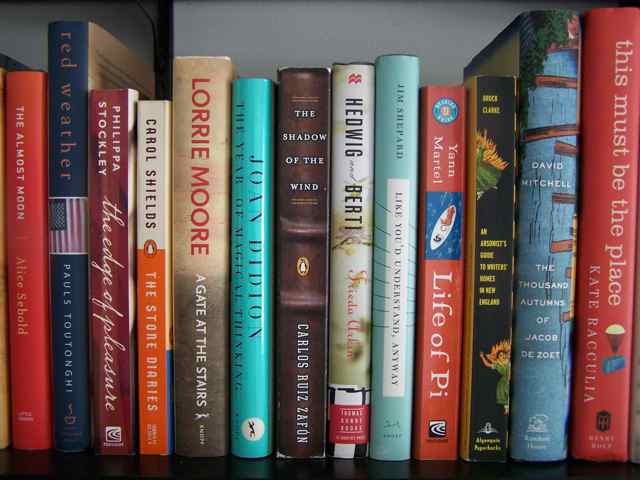 I’m reading The Power of Habit: Why We Do What We Do in Life and Business by Charles Duhigg with librarian-blogger Joy Weese Moll and others at Joy’s Book Blog. It’s a great choice for January – the month of resolutions and of trying to substitute good habits for bad.
I’m reading The Power of Habit: Why We Do What We Do in Life and Business by Charles Duhigg with librarian-blogger Joy Weese Moll and others at Joy’s Book Blog. It’s a great choice for January – the month of resolutions and of trying to substitute good habits for bad.
Part One of The Power of Habit is the shortest section, and deals with the habits of individuals. (Parts Two and Three go on to cover the habits of successful organizations and then societies.) Several case studies and simplified explanations (including cute graphics) of the neuroscience behind people’s habits intrigue the reader and make the concepts easy to grasp.
The case studies in the book are written up in story-style and the story of Eugene Pauly and his wife Beverly is the most heartbreaking. Eugene Pauly (known in medical literature as “E.P.”) had one of the most-studied brains of all time after viral encephalitis spread to his brain and did irreparable damage to a portion of it, causing him to lose his short-term memory. But he amazed doctors and nurses by how he was able to have seemingly normal conversations and perform normal daily actions like walking and eating. The author explains how figuring out how Eugene Pauly was able to still do these things with such severe loss of memory taught neuroscientists a lot about the role of habit in daily life.
I was hoping for an Oliver Sacks-type of entertainingly academic book, but the case studies in The Power of Habit aren’t way-out, unbelievable, or unsolvable; they’re actually the basis for what neuroscientists believe we know about habit, so while interesting, they seem more usual than unusual. So far, I think The Power of Habit will appeal more to readers who prefer Malcolm Gladwell’s popular science books; quirky business books like Pour Your Heart into It: How Starbucks Built a Company One Cup at a Time; or popular neuroscience books like Where Did I Leave My Glasses?: The What, When, and Why of Normal Memory Loss.
Visit Joy’s Book Blog to join the group read or find more discussion of The Power of Habit.
a

I’d heard of this book but I hadn’t thought of it focusing on memory at all. It sounds fascinating. It seems a lot more books are focusing on the usual nowadays, it opens a lot of otherwise “exclusive” subjects to everyone.
Sounds fun to have a readalong of this one. I read it last year and enjoyed it, though I do agree that the case studies are more matter of fact than in some books. I think it works.